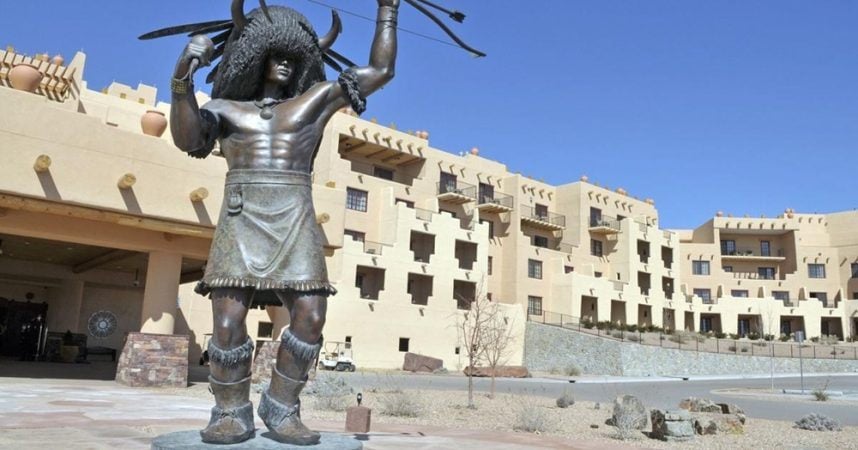New Mexico’s Supreme Court has ruled that personal injury claims against tribal casinos must be heard in tribal and not state courts. The ruling will be welcomed by the state’s tribes, which have long viewed the issue as a question of sovereignty.

Generally, in the US, legal claims arising from incidents that occur on tribal lands fall under the jurisdiction of tribal courts. But New Mexico was slightly different because of a controversial “visitor protection” provision that was inserted into the tribes’ gaming compacts. This allowed such cases to be heard in the state District Court under certain circumstances.
Sovereign Authority
Some civil litigants would prefer their cases to proceed through state courts because of the perception that they might not get a fair hearing and that tribal courts might favor the interests of the casinos.
But advocates for greater tribal sovereignty argue that tribal courts are perfectly capable of handling such matters fairly and impartially.
They also argue that the federal Indian Gaming Regulatory Act, which codified tribal gaming rights in 1988, did not authorize state courts to exercise jurisdiction over personal injury claims against the casinos.
Tuesday’s landmark ruling stemmed from a case brought by Jeremiah Sipp, an employee of Dial Electric, which sold lights to the Buffalo Thunder Casino in Santa Fe.
Sipp sued the casino’s owner, the Pueblo of Pojoaque, in the state court in 2016 alleging that he was injured while delivering lights after a casino employee abruptly lowered a garage door onto his head. Sipp claimed he was knocked unconscious and suffered a cervical spine injury that required major surgery.
Unanimous Decision
The Pojoaque Pueblo asked the state Supreme Court to determine the question of jurisdiction in the case. On Tuesday, the court ruled unanimously for the tribe, pointing to previous decisions in two federal cases, which it said effectively terminated the visitor protection provision.
One involved a lawsuit against the Santa Ana Star Casino in Bernalillo, N.M. which accused the casino of over-serving alcohol resulting in a fatal car accident. ‘
The other was brought by a plaintiff who slipped and fell at the Navajo Northern Edge Casino in Farmington, N.M. The US Supreme Court declined to hear that case or overturn the lower court ruling that jurisdiction belonged with the Navajo Nation.
The Pueblo of Pojoaque is very happy to receive this important ruling which properly ends tribal gaming tort-claims jurisdiction-shifting to New Mexico state courts,” pueblo Gov. Jenelle Roybal wrote in a statement to The Santa Fe New Mexican.
“This decision vindicates the sovereign authority of all Indian Pueblos and Nations in New Mexico and confirms that the State is bound by its gaming compact with us. We look forward to implementation of this decision going forward,” Roybal added.
The post Landmark Ruling Says New Mexico Casinos Can’t be Sued in State Courts appeared first on Casino.org.

